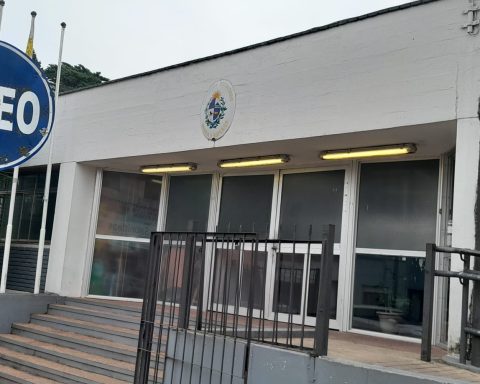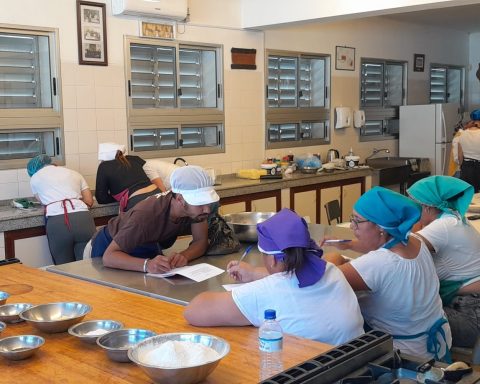First it was with Foreign Minister Francisco Bustillo. Then with President Luis Lacalle Pou. A week later with the Uruguayan ambassador to the United Nations, Carlos Amorín. In each of those meetings, which took place in October, The voice of the Arab countries that make up the powerful Arab League sounded loud and clear: they sought a change in the voting criteria of the Uruguayan government in the United Nations when dealing with the multiple issues related to the Palestinian question and consequently a return to historical conduct. of Uruguay in that international forum.
Despite the repeated requests and warnings about the possible commercial consequences that maintaining this policy could cause, the administration of Luis Lacalle Pou did not consider the arguments of the Arabs as sufficient and maintained the voting pattern that it had in 2021. In New York.
On November 11, the Fourth Committee (Special Policy and Decolonization) dealt with six resolutions, of which Uruguay abstained in five and voted in favor of one.
“United Nations Relief and Works Agency Operations for Palestine Refugees in the Near East”; “Assistance to Palestinian refugees”; “Israeli practices affecting the human rights of the Palestinian people in the Occupied Palestinian Territory, including East Jerusalem”; “The occupied Syrian Golan” and “Israeli settlements in the Occupied Palestinian Territory, including East Jerusalem, and in the occupied Syrian Golan” were the five resolutions in which Uruguayan diplomacy abstained.
The resolution “Assets of Palestine refugees and income earned by them” was supported by Uruguay.
A foreign ministry source told The Observer that the abstention in five resolutions and the favorable vote in one is explained based on the importance that Israel attaches to each of them.
In the days prior to the vote, the Palestinian ambassador in Uruguay, Nadya Rasheed, was received by the General Directorate of Political Affairs of the Foreign Ministry where they made it clear that the final decision rested with the president.
The Palestinian diplomat told The Observer that they felt “disappointed” with the vote of Uruguay.
“While we respect Uruguay’s position, we cannot help but be disappointed. Together with the Arab Group of 22 countries, we positively and diplomatically ask Uruguay to align itself with international law, legitimacy and international consensus when “It deals with Palestine. This has been the historical position of Uruguay. After the last vote last Friday at the UN, we felt that our call was not considered,” said Rasheed.
He also pointed out that it was “difficult to understand” the abstention in votes related to human rights.
“For example, just looking at one of the resolutions, 165 countries voted in favor of assistance to Palestinian refugees. Uruguay abstained once again, as it did last year for the first time on a resolution of this type. We find it very It is difficult to understand Uruguay’s position on this, especially when the strong value that the Uruguayan people place on human rights is widely known. We know that Uruguay does not have a neutral position on human rights, that it is strong and principled. Palestine cannot be the exception. Palestine reiterates, as the international community did with 165 votes in favour, that the rights of refugees is a matter of international law, human rights and humanitarian responsibility,” he said.
Meanwhile, the Israeli Embassy did not want to comment.
Advisory opinion to the International Court of Justice
The resolution “Israeli practices that affect the human rights of the Palestinian people in the Occupied Palestinian Territory, including East Jerusalem” included a paragraph expressing the Palestinian request to issue an advisory opinion to the International Court of Justice.
Uruguayan diplomacy argued during the justification of the vote why it did not share the initiative and, consequently, “did not hesitate not to support it”, despite the fact that it considers legal consultations with the ICJ as “a valuable instrument for the international system and the development of Public International Law”.
Ambassador Amorín alleged reasons of form and substance. In the first place, he said that the request was presented “with very little notice and without having carried out a broad and necessary discussion on the part of the membership”.
He also considered that this proposal is “extremely counterproductive by adding an element of unnecessary tension” that does not contribute to achieving substantive solutions in the conflict.
As Israel has argued, the Uruguayan diplomat pointed out that “the way to reach a solid and lasting solution to the situation in the region necessarily involves resuming dialogue, reducing tensions and increasing trust in order to allow the parties to move forward in the resolution of the conflict through direct bilateral negotiations”.













